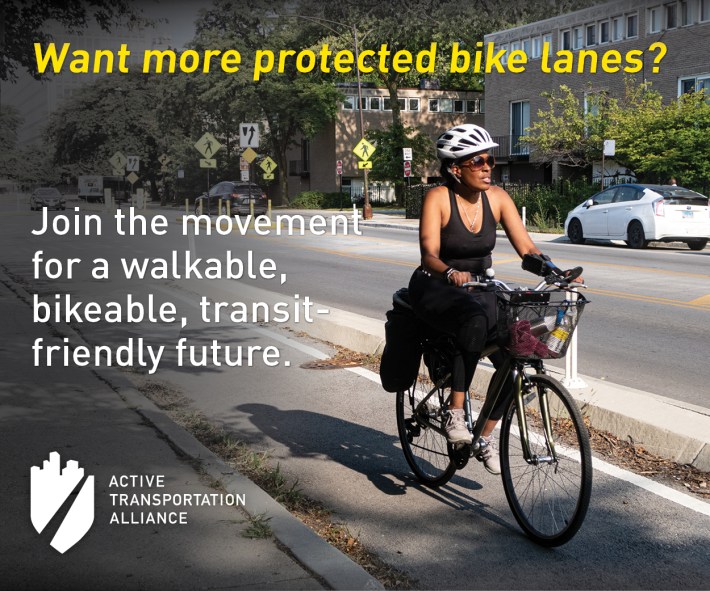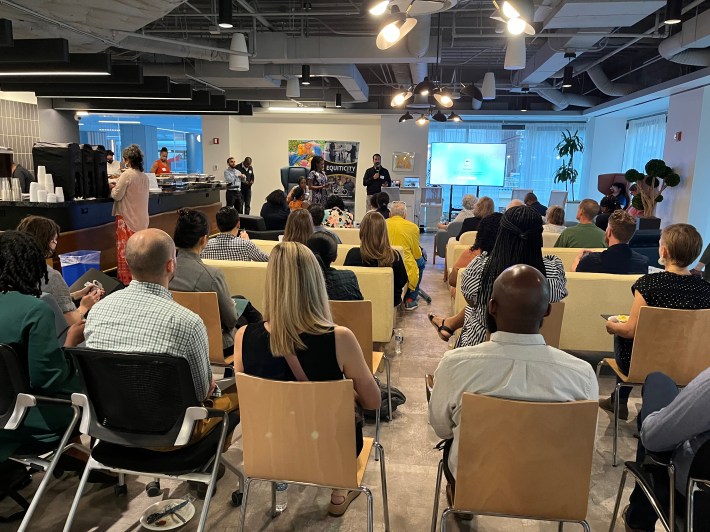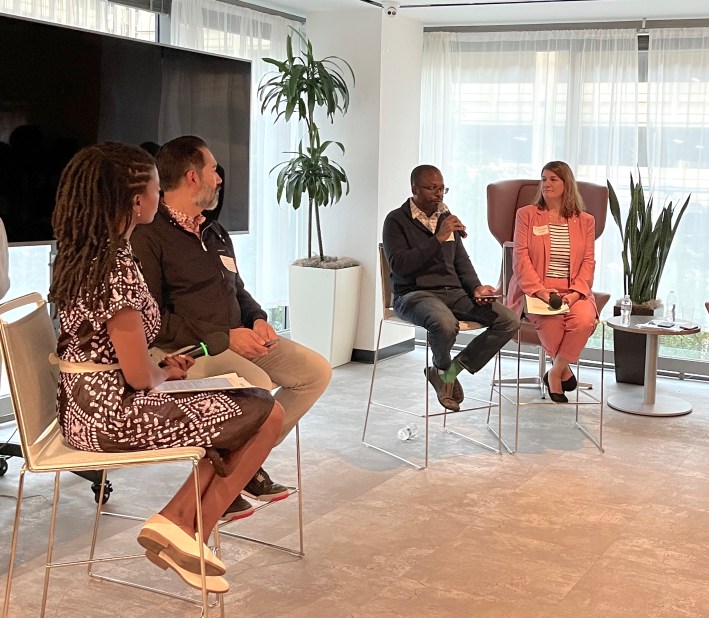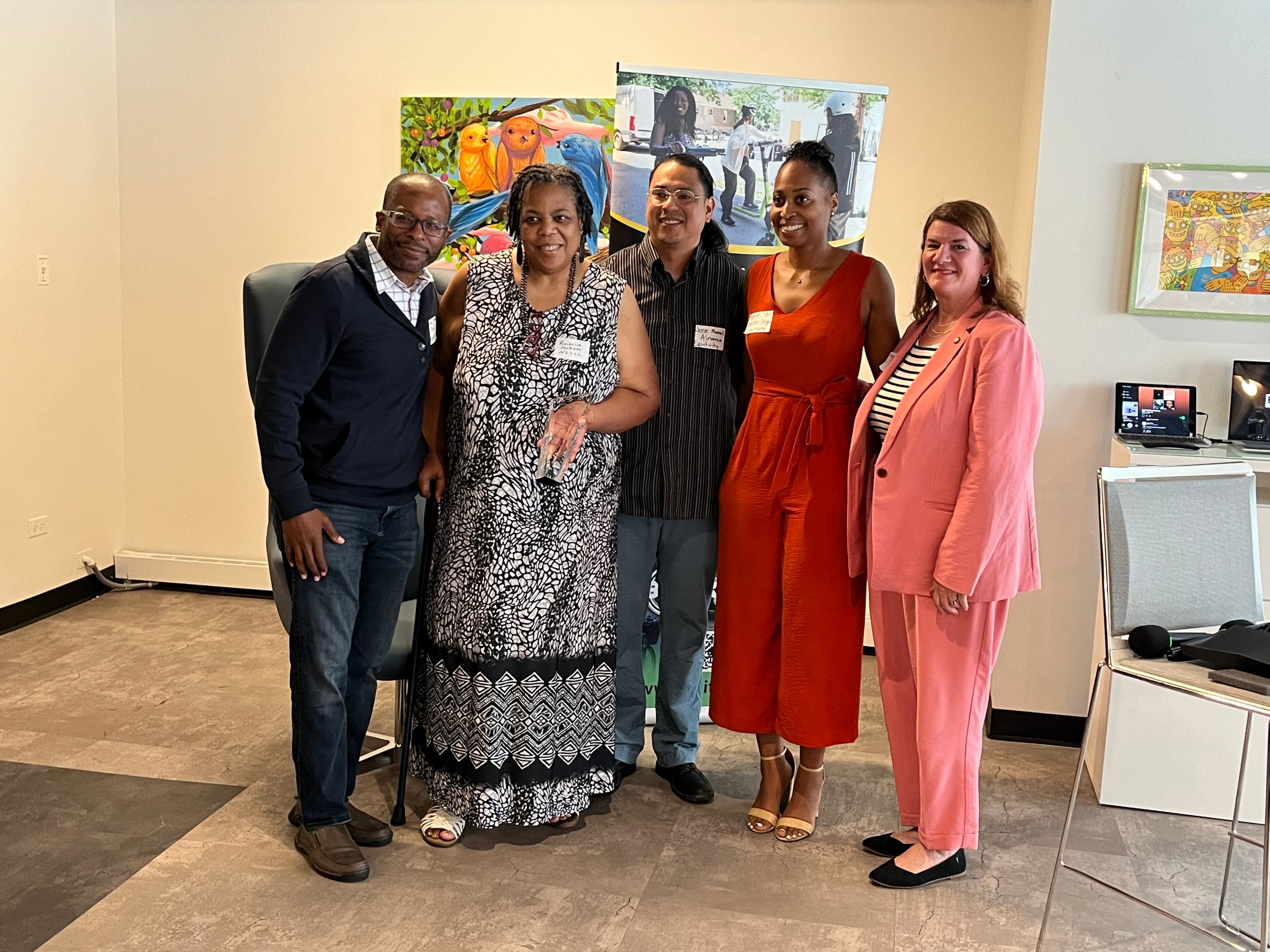
Last week, the mobility justice nonprofit Equiticity held its annual meeting, titled "Racial Equity in Motion: Exploring the Intersection of Transportation, Environmental Justice, and Public Health," at Impact House, 200 W. Madison.
One of the first speakers was Equiticity's newest board member, Greg Rodriguez. "I did not grow up in a wealthy family," he said. "I am only here today because of the support and loving threats of a single mother to push me to get where I am today, and I will confess I am trying to figure out my own identity, being a person of color, and what equity means."

Rodriguez currently works for the consulting firm Stantec as principal, mobility policy. "Before Stantec, I was a practicing attorney," he said. "I was often the only person of color at the table, and I appreciated being there, but I'm still learning how to how to use that influence, for lack of better words. And so again, that's another reason that I became a part of Equiticity because I want to learn from the perspectives of [Equiticity President and CEO Oboi Reed] and everybody in this room on how we implement this change and make sure equity is not just a talking point."
Reed spoke next, and showed a video explaining the origins of the Equiticity organization, including the moving story of how bicycling helped him overcome a bout of clinical depression, and feel connected with other people once more. He said that experience helped fuel his passion to make sustainable transportation more accessible to other people of color.
After that, Reed joined USDOT Principal Deputy Assistant Secretary for Policy Mariia Zimmerman in a "fireside chat" discussion. One of the questions that Reed and Zimmerman were asked was, after identifying the problem of transportation inequities and collecting data, what would they do from an infrastructure perspective?
"Having those of you who are in organizations or with public agencies where you can be clear on what are your principles and your goals and the outcomes that you're trying to achieve... I think setting up that framework is a really critical first step," Zimmerman replied. "Doing that hard analysis of whether your programs, policies, and funding decisions match with what you say, your values, and your principles... In my previous life, I worked with Hennepin County [in Minnesota, whose county seat is Minneapolis], and they had these great goals. And then when we looked at actually, the criteria by which decisions were being made, [they] in no way lined up with them."

Zimmerman added another important thing to consider is the "things that we can activate, that people can touch and see and feel? And so it's not this theoretical concept." She said she believes that the U.S. is in a "transportation transformation" period because of the unprecedented amount of multimodal projects.
Reed agreed that this is a transformational era for sustainable transportation in our country. "Equiticity would love to see more Black and Brown people out of their cars, walking, biking, and using transit," he said. "However, we also have to be honest about our society. There are some systemic barriers that make it more difficult for Black and Brown people to go [car-free]... Our 'Mobility Justice in Chicago' research found Black and Brown people are deeply concerned about violence to the extent that it shapes our mode choice. So we are calculating which way we get around in our neighborhoods and cities, whether it be biking, walking, or driving, and one of the primary considerations is which one keeps us safe."
"We are deeply concerned about violence when we think about creating car-less communities or [getting] people outside their cars, and if we don't address the systemic reasons for violence, and we're not going to be effective doing that work," Reed added. "Also, we must be honest about the historical impact of the transportation sector that continues to harm our neighborhoods, from highways to police pretextual stops. So all of these things that have been going on for many decades in our city and our neighborhoods are still undermining us, completely transforming how we use transportation in our society."
The event ended on a high note as Rochelle Jackson, chair of the North Lawndale Community Coordinating Council's transportation committee, received Equiticity's Racial Equity Award. Jackson was a key figure in the successful push to restore Ogden Avenue bus service in her community. Watch her inspiring acceptance speech here:
[With her strong transit experience, Rochelle Jackson is definitely someone Mayor Brandon Johnson should consider for the open board position at the Regional Transportation Authority, which oversees CTA, Metra, and Pace. - John Greenfield, editor.]

Did you appreciate this post? Please consider making a tax-deductible donation, to help keep Streetsblog Chicago's sustainable transportation news and advocacy articles paywall-free.




